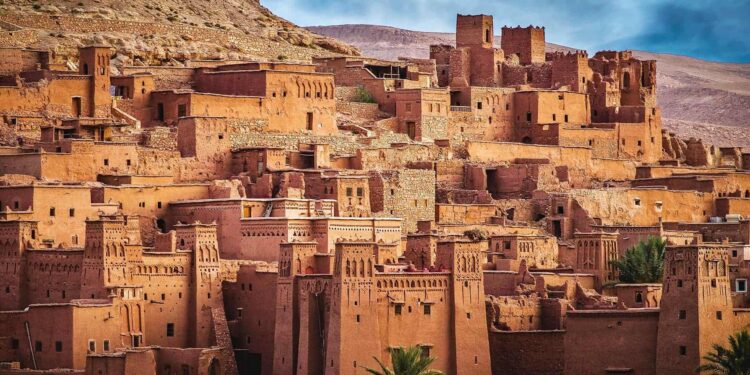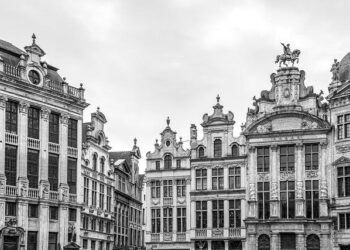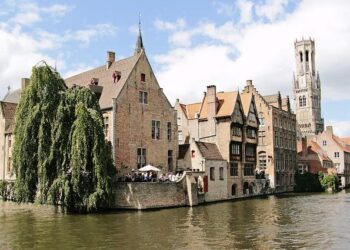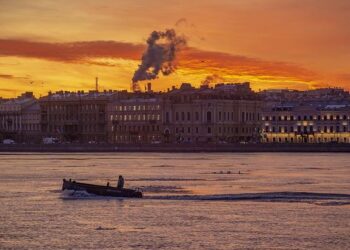Morocco Now, a high-profile event held recently in Brussels, has spotlighted Morocco’s growing appeal as a prime destination for foreign investment. Organized in partnership with Atalayar, the event brought together key business leaders, investors, and policymakers from Belgium and beyond to explore the North African country’s dynamic economic opportunities. With its strategic location, diversified economy, and progressive reforms, Morocco is positioning itself as a gateway for European investors seeking growth in emerging markets. This article delves into the highlights of Morocco Now and examines why Morocco continues to captivate foreign investors in Belgium.
Morocco Now Highlights Strategic Opportunities for Belgian Investors
Morocco has positioned itself as a prominent gateway for Belgian investors seeking growth opportunities in Africa and beyond. The event emphasized Morocco’s robust economic framework, strategic location, and commitment to innovation as key factors driving its appeal. With a fast-growing market and improving infrastructure, the North African nation is rapidly becoming a hub for sectors such as renewable energy, automotive manufacturing, and digital technology. Belgian companies are encouraged to explore synergies within Morocco’s expanding free trade zones and benefit from advantageous trade agreements across multiple continents.
Key strategic advantages highlighted include:
- Competitive labor force: A young, skilled, and multilingual population ready to meet evolving business demands.
- Access to key markets: Morocco’s proximity to Europe, Africa, and the Middle East facilitates diversified trade routes.
- Government incentives: Tax breaks and streamlined administrative procedures supporting foreign direct investment.
- Growing sectors: Renewable energies, automotive, aerospace, agribusiness, and fintech.
| Sector | Growth Rate (2023) | Investment Incentives |
|---|---|---|
| Renewable Energy | 12% | Tax exemptions, subsidies |
| Automotive | 10% | Customs reductions, grants |
| Digital Tech | 15% | Startup incubators, financing |
Innovative Sectors and Government Initiatives Driving Morocco’s Economic Growth
Morocco is rapidly positioning itself as a dynamic hub for innovation and economic diversification, driven by strategic investments in key sectors such as renewable energy, automotive manufacturing, and aerospace. The country’s abundant solar and wind resources are harnessed through ambitious projects like the Noor Ouarzazate Solar Complex, making it a continental leader in green energy production. Additionally, the automotive industry, bolstered by international partnerships with global brands, is transforming Morocco into a competitive manufacturing base with a growing export footprint. These sectors not only contribute significantly to GDP but also foster technological advancements and job creation.
Complementing private sector growth are government-backed initiatives designed to attract and support foreign investment. Programs such as the Moroccan Investment Development Agency’s streamlined licensing procedures, tax incentives, and creation of special economic zones are tailored to ease market entry and operational costs for multinational companies. Key incentives include:
- Reduced corporate tax rates in Free Zones
- Subsidies for research and development projects
- Training programs to enhance workforce skills
- Robust infrastructure development plans
| Sector | Growth Rate (2023) | Key Initiative |
|---|---|---|
| Renewable Energy | 12% | Noor Solar Expansion |
| Automotive | 9% | Free Trade Zones |
| Aerospace | 8% | Industrial Clusters Development |
Expert Recommendations for Navigating Morocco’s Investment Landscape
Foreign investors aiming to capitalize on Morocco’s evolving market are advised to prioritize deep understanding of the country’s regulatory environment alongside its emerging sectors. Strategic sectors such as renewable energy, automotive manufacturing, and digital services offer lucrative opportunities backed by government incentives and an expanding skilled workforce. Engaging with local partners and consulting early with legal experts helps navigate complex procedures, ensuring compliance and maximizing investment returns.
Market entry strategies should also consider Morocco’s unique geopolitical position as a gateway between Europe and Africa. Investors can leverage the country’s robust trade agreements and growing infrastructure to optimize supply chain efficiency. The following key recommendations serve as a roadmap for successful market penetration:
- Conduct thorough due diligence on sector-specific regulations and tax benefits
- Establish relationships with local authorities and business networks
- Assess regional hubs such as Casablanca and Tangier for strategic advantages
- Plan for cultural nuances in business negotiations and management
| Investment Factor | Key Insight | Benefit |
|---|---|---|
| Renewable Energy | Government incentives & strong solar potential | Reduced costs & long-term viability |
| Automotive Sector | Export-oriented manufacturing hubs | Access to EU & African markets |
| Digital Economy | Growing demand for tech services | Innovation-driven growth |
Key Takeaways
As Morocco continues to position itself as a dynamic hub for foreign investment, platforms like Morocco Now play a pivotal role in strengthening economic ties with Belgium and beyond. By highlighting the Kingdom’s strategic advantages, diverse opportunities, and pro-business environment, the initiative not only attracts Belgian investors but also reinforces Morocco’s status as a key gateway to Africa. With ongoing efforts to foster collaboration and innovation, Morocco’s appeal on the international stage is set to grow, promising mutually beneficial partnerships and sustained economic growth in the years ahead.
















